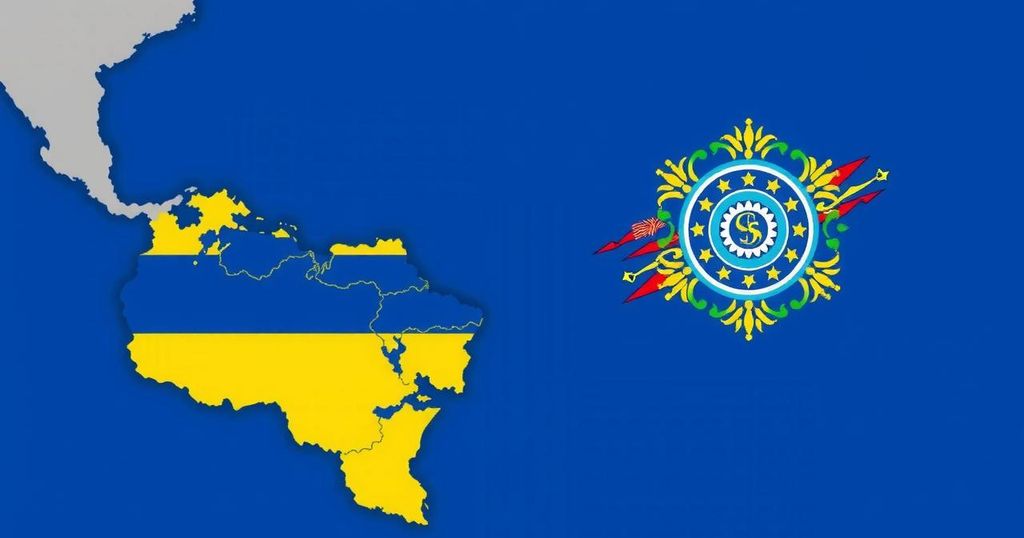Maduro Asserts Venezuela’s Voice Amid BRICS Membership Setback

Venezuelan President Nicolas Maduro vowed that his country would not be silenced after Brazil vetoed its application to join the BRICS group. The rejection follows a contentious presidential election, with allegations of electoral fraud complicating relations between Venezuela and Brazil, despite their historical alliance.
Venezuelan President Nicolas Maduro expressed his determination to ensure that his country’s voice is heard, following Brazil’s denial of Venezuela’s application to join the BRICS group of nations on October 26, 2024. The rejection came during a summit in Kazan, Russia, where the Venezuelan government reacted vehemently, dubbing the decision as “hostile” and “immoral.” In a broadcast upon his return, Mr. Maduro declared, “No one will block or silence Venezuela, not today, not tomorrow, not ever.” This statement underscores Venezuela’s ongoing struggle for international recognition and participation in key global economic groups amidst a severe economic crisis, which the government attributes to American sanctions. Relations between Mr. Maduro and Brazilian President Luiz Inacio Lula da Silva, historically viewed as allies, have recently deteriorated following the controversial presidential election on July 28, when Mr. Maduro allegedly was re-elected amid claims from the opposition that they had won. An advisor to Mr. Lula, Celso Amorim, mentioned that the veto was a byproduct of a “breach of confidence” and criticized Mr. Maduro for not publicizing the election results as previously agreed. Many believe that these results might demonstrate a significant defeat for Mr. Maduro at the hands of rival Edmundo Gonzalez Urrutia, who sought refuge in Spain after facing legal challenges. Pointing out his engagements at the Kazan summit, Mr. Maduro asserted that he had earned recognition from representatives of nearly 30 countries, claiming they all acknowledged his electoral win. The BRICS group, already inclusive of Brazil, Russia, India, South Africa, and China, expanded its membership to Ethiopia, Iran, Egypt, and the United Arab Emirates in 2024.
The article centers on Venezuela’s aspiration to join the BRICS coalition, a grouping of significant emerging economies that was recently expanded. The geopolitical dynamics surrounding this desire have been complicated by internal and external conflicts, specifically Maduro’s controversial leadership and the opposition’s claims of electoral fraud. The economic plight faced by Venezuela, exacerbated by U.S. sanctions, has heightened these tensions, prompting Maduro to firmly state that his nation will not be sidelined on the global stage despite Brazil’s veto.
In summary, President Maduro’s defiance in the face of Brazil’s veto highlights a broader narrative of Venezuela’s struggle for international recognition amidst a severe economic crisis and contentious political environment. The fallout from the July 28 election, coupled with strained relations with Brazil, underscores the complexities surrounding Venezuela’s ambitions to join BRICS, further muddying the waters of its already fraught political landscape.
Original Source: www.thehindu.com







